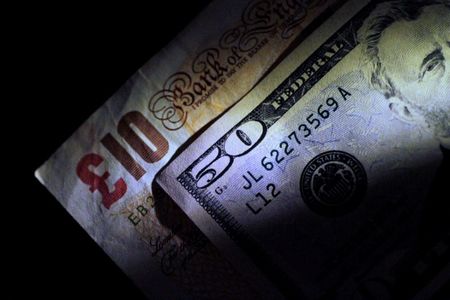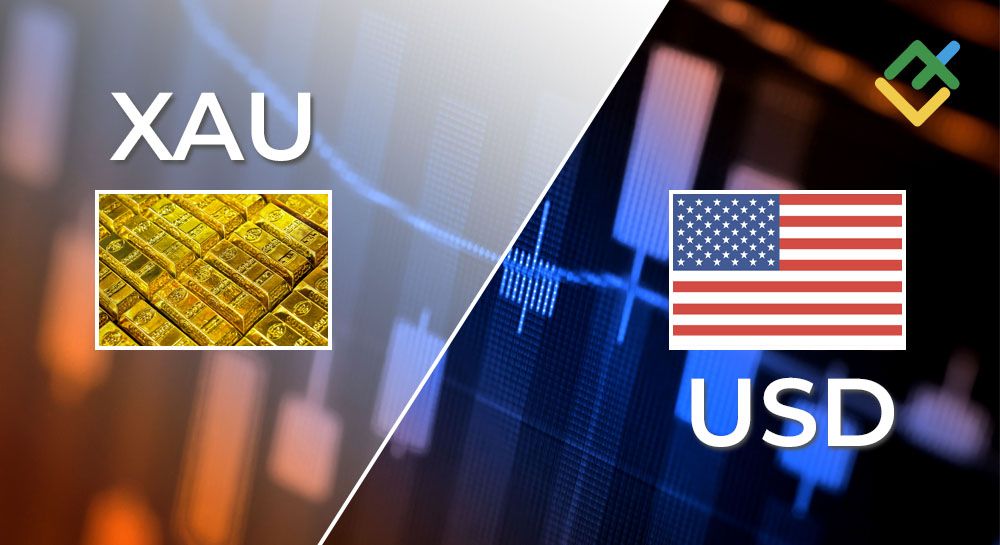
Investing.com – The U.S. dollar slipped lower in early European trade Thursday as weak economic data raised expectations of interest rate cuts by the Federal Reserve, while sterling edged higher as the U.K. went to the polls.
At 04:20 ET (08:20 GMT), the Dollar Index, which tracks the greenback against a basket of six other currencies, traded 0.2% lower at 104.900, extending steep overnight declines.
Economic weakness hits dollar
The dollar retreated slightly Thursday, continuing Wednesday’s weakness, after the release of data showing softer-than-expected ADP employment figures and a weak purchasing managers index reading on non-manufacturing activity.
This data has increased expectations that a cooling U.S. economy will persuade Fed officials to sanction interest rate cuts in the near future.
The CME Fedwatch tool showed traders pricing in a nearly 66% chance of a September rate cut, up from 59% seen a day ago.
“We suspect some of that reluctance to price in more easing is related to rising chances of Donald Trump winning the U.S. presidency in November. The assumption here is that Trump’s protectionist and tax-cut policies can slow Fed easing,” said analysts at ING, in a note.
Trading is likely to be range bound Thursday, given the U.S. is celebrating Independence Day, and a lot of attention will turn to Friday’s nonfarm payrolls report for further guidance.
French political uncertainty
EUR/USD rose 0.1% to 1.0794, with the euro benefiting from the dollar weakness, although the single currency may struggle to hold onto its gains amid regional political uncertainty.
The European Central Bank should not rush into its next interest rate cut, Slovenia’s central bank governor Bostjan Vasle said on Wednesday, as a host of risks could still derail eurozone disinflation.
“The message that European Central Bank officials sent from [a ECB forum in] Sintra was one of patience. There is clearly no pressure to move with back-to-back rate cuts given slower disinflation, and it seems that the preference is also for a wait-and-see approach over verbal intervention when it comes to the recent bond market turmoil,” said ING.
The euro has fallen more than 1% since French President Emmanuel Macron called for a surprise snap election on June 9, and it’s difficult to see it gaining substantially given the uncertainty ahead of Sunday’s run-off election.
“We remain somewhat doubtful that markets will be comfortable with EUR/USD trading close to 1.09 given lingering uncertainty about French politics and the rising risk of a Trump re-election,” ING added.
GBP/USD rose 0.2% to 1.2759, with the U.K. going to the polls Thursday in a general election.
The opposition Labour Party is widely expected to end 14 years of power for the Conservative Party, with the latest polls giving Labour an approximate 20-point lead.
“We have struggled to identify major risks for the pound heading into today’s vote. Not only because opinion polls have firmly suggested Labour should secure a majority, but also because it seems unlikely that the change in government will influence the policy path for the Bank of England,” ING said.
The U.K.’s tight finances mean any new government will have little room to drastically increase public spending.
Yen on intervention watch
In Asia, USD/JPY traded 0.3% lower to 161.21, after nearly crossing the 162 level on Wednesday.
The pair was still trading well above 160- the level that had last attracted government intervention in May. With Japanese officials reiterating their commitment to defend the yen, traders remained on guard over any potential intervention in the coming days.
Traders speculated that the government would take advantage of low trading volumes during the July 4 U.S. market holiday to intervene. The government’s intervention in May had taken place during a Japanese market holiday.
USD/CNY largely unchanged at 7.2701, remaining close to seven-month highs amid waning confidence in the Chinese economy.
This post is originally published on INVESTING.



